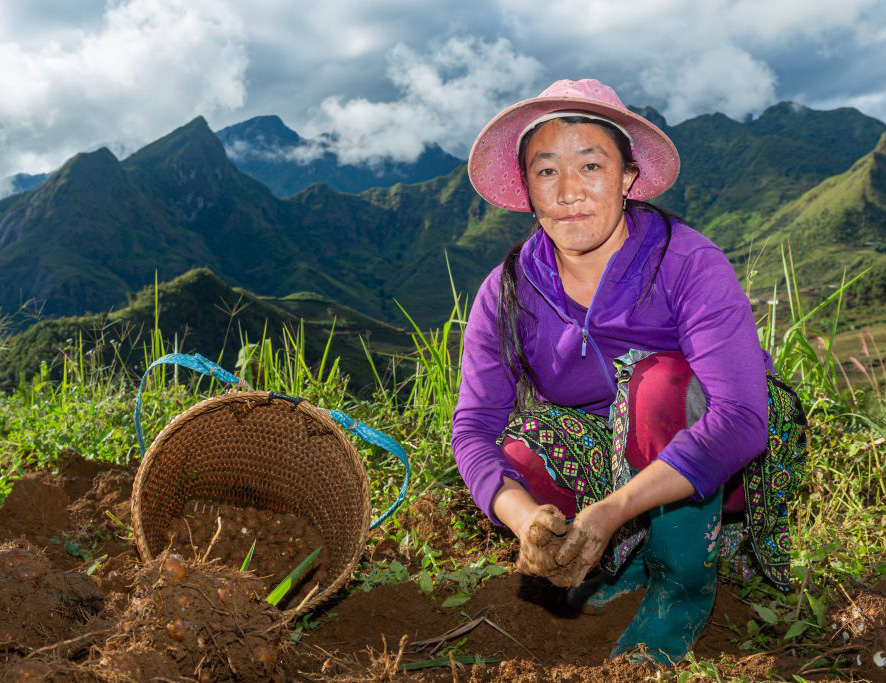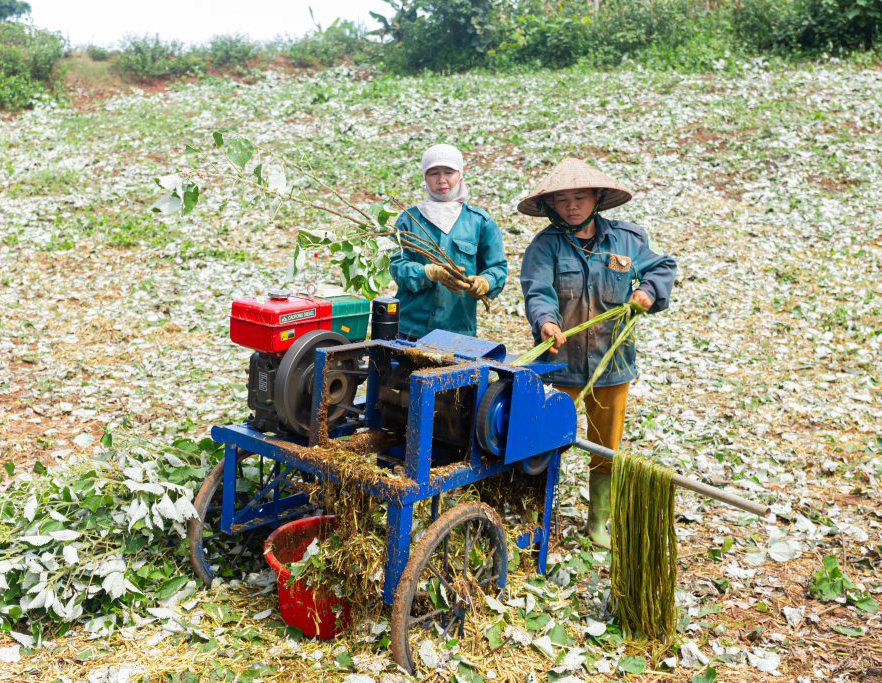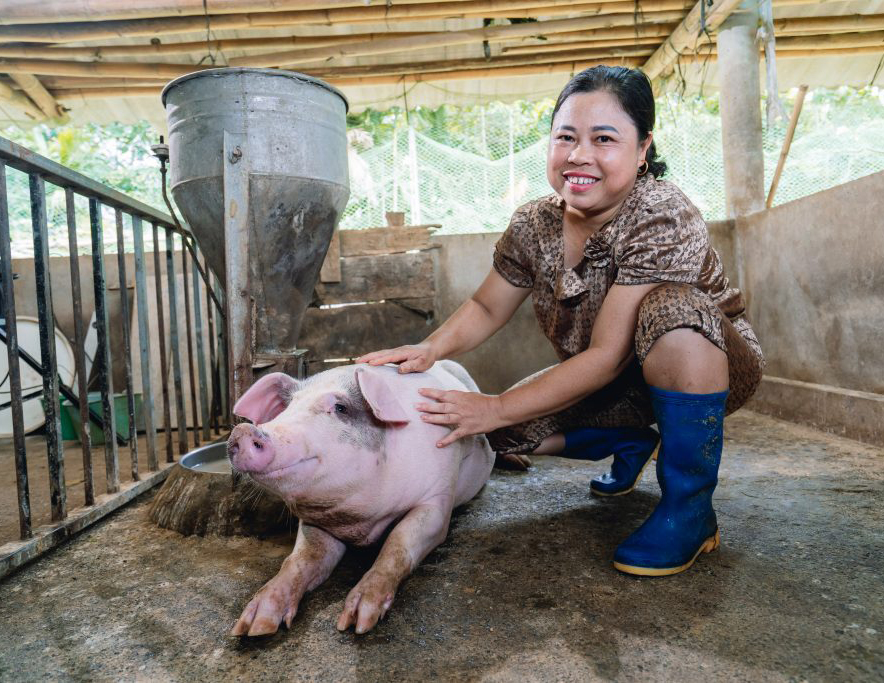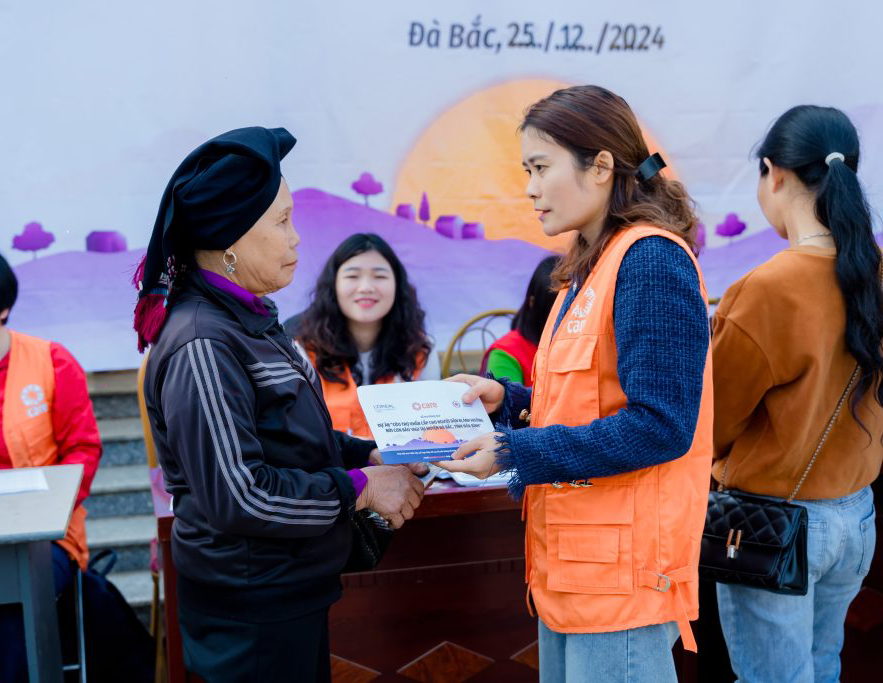Vietnam has experienced remarkable economic growth in recent years; however, this prosperity has not reached all segments of society equally.
A significant challenge lies in economic disparities and gender inequality. While urban centers thrive, rural areas, especially those inhabited by ethnic minority communities, lag behind. Ethnic minority women face compounded disadvantages, struggling with limited access to education, healthcare, and economic opportunities. Deep-seated gender norms further restrict their participation in the workforce and decision-making.
The COVID-19 pandemic exacerbated these vulnerabilities, disproportionately affecting women with increased unpaid care work, job losses, and exposure to domestic violence, alongside impacting informal workers and small businesses.
Tackling environmental challenges in Vietnam
Vietnam also remains highly vulnerable to environmental challenges and climate change, enduring frequent natural disasters such as typhoons, floods, and droughts. The critical Mekong Delta is severely threatened by sea-level rise and saltwater intrusion. While the government has intensified efforts through strategies and international commitments, adaptation and mitigation measures have been unevenly implemented, leaving many rural and vulnerable communities with insufficient resources to cope.
In response, there’s a growing focus on circular economy principles and carbon markets. The government has strengthened policies to promote recycling and sustainable resource use, with companies adopting circular practices. Concurrently, Vietnam is exploring carbon pricing mechanisms and developing a national carbon market, engaging in international collaborations to build expertise.


The MekongElevate: Ethnic Communities Leading Inclusive Climate Action program
The MekongElevate: Ethnic Communities Leading Inclusive Climate Action (MKE) program, funded through DFAT’s Mekong Australia Partnership, has recently commenced. MekongElevate is a four-year program being delivered in Vietnam, Cambodia, and Laos. MKE targets ethnic minority and hill tribe communities in remote areas of the three countries, working with communities to increase resilience to social shocks and climate change. The program will support increased climate-smart agriculture approaches to mitigate the impacts of climate change; support livelihoods and economic safety nets for ethnic minority communities, and elevate the voices of women, youth, and people with a disability in decision making processes in the region.
Meet Ms. Hien
In Phu Tho province, Ms. Bui Thi Hien, a member of the “Resilience First” project’s livelihood group, has transformed her pig farming practice by applying Indigenous Microorganism (IMO) technology and building a closed-loop biogas system. These innovations have not only improved the health of her pigs but also cut household costs and reduced environmental impact.
Since joining the project in 2024, supported by the Embassy of Ireland, CARE, Plan International Vietnam, and RIC, Ms. Hien has adopted probiotic-based feed made from banana, yogurt, fruit, and bran — fermented at home using IMO techniques. This feed helps pigs digest better, stay healthy, and gain weight with minimal illness. She also gives her pigs a daily “probiotic smoothie” and keeps a detailed health log with regular vaccinations.
Beyond feeding practices, Ms. Hien uses a biogas tank to process livestock waste. The methane gas generated is used for cooking, eliminating her household’s fuel expenses. Solid waste is composted and reused as fertiliser for over 5 sào (approx. 1,800 m²) of farmland, creating a clean, odour-free, sustainable farming model.
With three healthy sows producing two litters a year, Ms. Hien now saves 30–40 million VND annually. More importantly, she feels confident and capable. “It’s much easier now,” she says, noting that she has more time for her grandchildren and no longer spends evenings cooking feed.
Her story reflects the broader goal of the “Resilience First” project: to equip rural women with the tools and knowledge to build resilient, climate-smart livelihoods — turning everyday farmers into champions of sustainable development.


Embracing advancements in digital technology
Vietnam is making significant strides in digitalisation and AI technologies, with government initiatives promoting digital infrastructure, skills, and AI adoption across various sectors. While this offers immense potential, the pandemic also underscored a digital divide, further marginalising those without access to digital resources.
Post-2021 Vietnam presents a dynamic landscape of rapid economic advancement alongside persistent inequalities and severe environmental threats. Addressing these issues, particularly for vulnerable ethnic minority women, requires integrated, community-focused, and sustainable solutions that leverage both emerging technologies and robust local engagement.
Donate now
Support our ongoing work to create a more equal world.
Your donation can help end extreme poverty and give people the means to build a better future for themselves in countries like Vietnam.
For those living in extreme poverty, your support brings education and training, healthcare and clean water, nutritious food, and new ways to earn an income. And in times of crisis, you help us deliver emergency relief. Please donate today.
Read more about our ongoing impact in Vietnam here.
The on-going work we do in Vietnam is in partnership with these local organisations: Community Development Center, Dak Lak (CDC), Consultative Institute for Socio-Economic Development of Rural and Mountainous Areas (CISDOMA), Disability Research and Capacity Development Center (DRD), For Vietnamese Stature Foundation (VSF), Institute for Development & Community Health (LIGHT), MEVI, Plan International in Vietnam, Thanh Hoa MFI, TUVA Communication, Vietnam Prosperity Joint Stock Commercial Bank (VPBank), Women’s Initiative for Start-ups and Entrepreneurship (WISE), World Vision Vietnam

